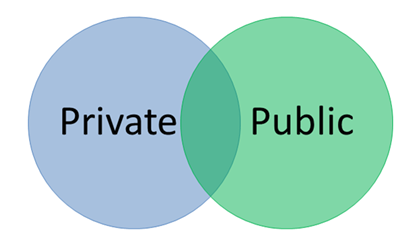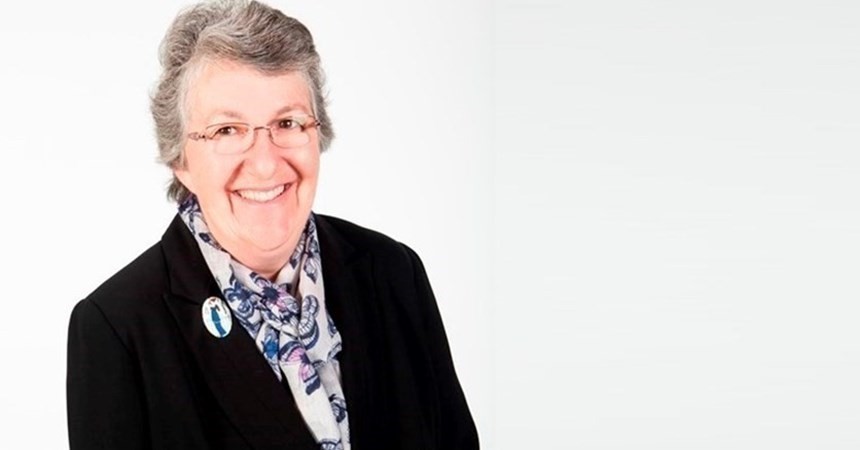The Gospel reading from Matthew (18:15-20) which echoes the first reading from the prophet Ezekiel (33:7-9) reminds us to be responsible and to hold our brothers and sisters to account:
I tell you solemnly once again, if two of you on earth agree to ask anything at all, it will be granted to you by my Father in heaven. For where two or three meet in my name, I shall be there with them.
And from the second reading from the letter of St Paul to the Romans (13:8-10):
You must love your neighbour as yourself. Love is the one thing that cannot hurt your neighbour; that is way it is the answer to every one of the commandments.
In meeting with the Synod Working Party during the week, I believe this to be their motivation in attempting to sift through the listening exercises that has been taking place over the past few years with the Plenary Council and Diocesan Synod preparations. We have been listening to each other and to the Spirit, to discover what private pain we are feeling and to convert that pain into public action.

This is the third in a series of five. In the first week I shared with you the Identity and Community foundation area and in the second week Worship and Prayer was the focus. This week I will share with you what the Discernment of Data Focus Group heard in the Formation and Education Foundation. You may recall the diagram below which reflects our Diocesan Stewardship Planning Framework.

The Discernment of Data Focus Group reviewed the data from the first session of our own diocesan synod of November last year as well as information coming from the Plenary Council, particularly the information gathered from our diocesan submissions. This enormous amount of data was then allocated into the five foundations.
Within the foundation Formation and Education, the following key areas were identified:
- Better Faith Formation
- Careful, well-planned programs
- Resources
- Catholic Schools
- Candidates for Priesthood
What the members of the Discernment of Data Focus Group then did was to list what we heard under each of the key areas. What we heard can be quite challenging, as it might reflect the reality of some and not others. The task in leading up to the second session of our diocesan synod will be to formulate proposals for further dialogue and discernment.
FORMATION/EDUCATION
Open to Conversion, Renewal and Reform
Foundational 3: Formation and Education
Facilitates spiritual growth and promotes empowerment through education and formation.
- BETTER FAITH FORMATION
What we heard:
Some Diocesan Plenary Council and Synod responses indicated that people saw:
- the need for adult faith formation in a wide range of topics (scripture, liturgy, church teachings, sexuality, relationships, conscience, faith and science, living one’s faith in a hyper-rational secular age)
- a range of people needing faith formation: youth, parents, families, lay leaders, disillusioned and wounded people, those ‘living the hardships and joys of marriage and family life’, those involved in pastoral ministries and diocesan agencies
- the allocation of finance and personnel resources to the faith formation of children, while the majority of Catholics have had little or no ongoing faith formation since leaving school.
- that opportunities for adult faith formation have been limited:
- for many, to homilies at Mass/liturgies,
- for some, to their involvement in faith-sharing groups, occasional conferences and seminars
- for a small minority, to their participation in user-pays courses such as the Christian Formation Course, theology degree courses and RE training …
- CAREFUL, WELL-PLANNED PROGRAMS
What we heard:
Some Diocesan Plenary Council and Synod respondents recognised that:
- The diocese already makes available many faith formation opportunities (cf. work of the Pastoral Ministries Formation and Education staff, the Diocesan Adult Faith Formation Council [AFFC], Christian Formation Course, the Religious Education and Spirituality department of the CSO, the DOMN-ACU Scholarship program, the Diocesan Liturgy Council, the Diocesan Council for Ministry with Young People, University of Newcastle Catholic Society, Pastoral Placement Program, Catholic Care’s Marriage Team, as well as RCIA, Sacraments of Initiation Teams, and faith sharing groups such as Cursillo,....)
- Very few seem to make use of the opportunities provided by the diocese which therefore fail to touch the majority of adult Catholics
- Current research shows that 50% of young people under the age of 30 struggle to see any connection between faith and reason; practicing faith has been reduced to the attendance of Mass in the eyes of many; there is a growing distance between the church and the modern world
- Many diocesan employees reportedly have little understanding of the Church and its mission, while they undoubtedly have skills and expertise for the work, they do
- There are more people than perhaps ever before in the Church with qualifications in Religious Education and Theology
- RESOURCES
What we heard:
Some Diocesan Plenary Council and Synod respondents recognised that:
- There is no physical or online centre for promoting faith formation and spiritual development;
- There is no dedicated space where people can gather for a genuine encounter with Jesus Christ;
- Catholic students at State Schools are increasing so more resources are needed for SRE;
- In comparison with the resources spent of the education of children, investment in adult faith formation/education has been minimal;
- Ongoing work is being done on the rationalising of all books and media resources in the diocese.
- Existing programs such as e-learning already available are not used
- CATHOLIC SCHOOLS
What we heard:
Some Diocesan Plenary Council and Synod respondents believed that:
- the decline in Mass attendance and especially the loss of young people from parish communities should be addressed via our school communities.
- the schools have a well-developed faith formation framework in place.
- it is the responsibility of our Catholic schools to produce fully-formed, ‘practising’ Catholics.
- Lip service is given to the principle that parents are the first and most important faith educators of their children but little collaboration between schools and families is evident.
- There is a lack of understanding of the nature of faith development as a life-long process: from childhood, through adolescence, young adulthood to mature faith and the varying needs of individuals in these different stages.
- Research indicates that the greatest influence on young people attending Mass is that of parents
- CANDIDATES FOR PRIESTHOOD
What we heard:
Some Diocesan Plenary Council and Synod respondents indicated that:
- The process and the criteria for the selection of candidates for priesthood is unknown to most Catholics;
- Many of our diocesan priests can be considered amongst the injured as a result of clergy sexual abuse;
- The doctrine of ontological difference appears to separate priests from the laity in an unhealthy way;
- They have concerns about the low numbers of candidates for priesthood in our diocese and in Australia;
- The majority of our priests formed in the spirit and teachings of Vatican 11 have retired;
- For overseas priests ministering in the diocese there are cultural differences that are problematic both for the priests and the people they serve
 While working towards the synod proposals which will be presented to the diocesan community, those primarily involved in faith formation in the diocese (the staff and volunteers from both the Formation and Education Office, the Adult Faith Formation Council and Religious Education and Spirituality) are continuing to explore and seek out opportunities to provide faith formation experiences for all.
While working towards the synod proposals which will be presented to the diocesan community, those primarily involved in faith formation in the diocese (the staff and volunteers from both the Formation and Education Office, the Adult Faith Formation Council and Religious Education and Spirituality) are continuing to explore and seek out opportunities to provide faith formation experiences for all.
The most exciting news for this week is the launch of the online diocesan library which has a new website for ease of use (https://www.mn.catholic.org.au/places/library/). Mandy Greaves, our diocesan librarian, has worked tirelessly all year to sort through thousands of resources to enable you to browse and borrow resources. At some stage, there will be a physical location, but until then please explore this website. Mandy has been joined in this task by a Library Focus Group.
You will find on this website several links - there is a place to click to go to faith formation opportunities, there is a spot for news which provides you with connection to a number of Catholic news sources, a book club and of course the capacity to borrow books. I invite you to visit this website each day in order to be updated on the news of the diocese – Aurora, MNNews, Dio Update as well as news from overseas – La Croix, the Tablet and National Catholic Reporter.
We are trying to respond to the concerns expressed in our Listening and Dialogue phase by discerning with you, what the Spirit is asking of us in Australia and the Diocese at this time.
I will finish this week’s message with the diocesan theological principle 3.3:
To grow to Christian maturity and participate fully in Christ's mission
all of us .. must continually deepen our understanding of the faith
through formation that is faithful to the Scriptures and Sacred Tradition.
Formation is not the privilege of a few but the right and duty of all ...
Possibilities of formation should be proposed to all,
especially the poor who can be a source of formation for all. [1]
Till next week.
[1] Pope John Paul II, Christifideles Laici, 1988

